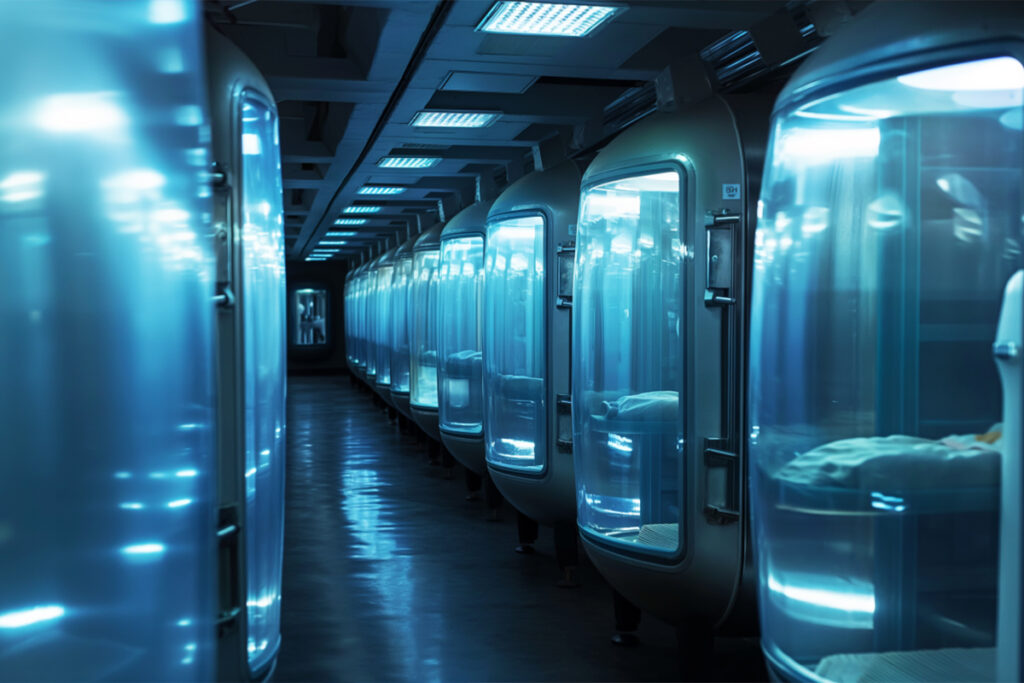Until Labs targets organ transplantation bottlenecks as a first step towards whole-body reversible cryopreservation.
Cryonics startup Until Labs has closed a $58 million Series A financing round, bringing its total raised to over $100 million as it works to build technology for reversible cryopreservation. Founded by Laura Deming and Hunter Davis, the San Francisco-based company, previously known as Cradle, emerged last year with $48 million in seed funding and a long-term goal of proving the feasibility of whole-body reversible cryopreservation.
The new funding round, led by Founders Fund with participation from Lux Capital and Field Ventures, will enable Until to expand its team and infrastructure while advancing its first medical product: organ cryopreservation for transplant patients and surgeons.
The company’s immediate focus is on overcoming one of transplant medicine’s most rigid bottlenecks: the narrow window of organ viability. Hearts, lungs and livers must reach recipients within 4 to 12 hours of procurement, while kidneys last no longer than 24 to 36. These limits dictate the logistics of transplantation, confining patients to hospitals, requiring surgeons to charter planes to retrieve organs, and resulting in thousands of donations being discarded each year due to timing mismatches.
To address these challenges, Until is developing perfusion hardware, cryoprotective agents and rapid rewarming infrastructure designed to preserve organs indefinitely without damaging their structure or function, then safely restore them for transplantation. The company says it has already built a discovery engine for new cryoprotective molecules, created a custom electromagnet for rewarming, and scaled its work from neural tissue slices to large-animal organs. It is now focused on refining protocols that preserve post-thaw organ quality.
“Donor organs need more time to make it to the patients who need them,” said Until’s founders in a statement. “We develop technology to help transplant patients and surgeons get organs on their timeline, unlocking better organ matching for patients and preventing organs from being discarded because they didn’t get to the patient in time.”
Whole-body cryopreservation
The company’s longer-term vision, however, extends far beyond transplant logistics, ultimately aiming for the holy grail of whole-body reversible cryopreservation. Its early work demonstrated recovery of electrical activity in rewarmed slices of rodent neural tissue. The company’s previously stated roadmap includes showing preserved synaptic function in neural samples, successful cryopreservation of large-animal organs, human organ preservation clinical trials, and eventually reversible whole-body cryopreservation in animal models.
Until’s philosophy reflects a belief that biological time can be suspended and restarted safely at scales far beyond current practice. Beyond organ transplantation, reversibly pausing biological function could allow new ways of studying brain tissue, potentially accelerating neuroscience research and drug discovery. It could also offer a reprieve for patients with terminal illness, preserving them until therapies are developed. And in its most ambitious form, the technology suggests the possibility of medical hibernation, a future where entire human bodies could be cooled and rewarmed without damage.
For now, Until Labs is working on milestones that can directly impact patients: ensuring that every viable donor organ can be preserved, transported and successfully transplanted. But the infrastructure being built, from cryoprotectant chemistry to high-voltage rewarming systems, is deliberately designed with an eye toward a much broader horizon – one where medicine can not only extend life but pause it, and restart it, on demand.

